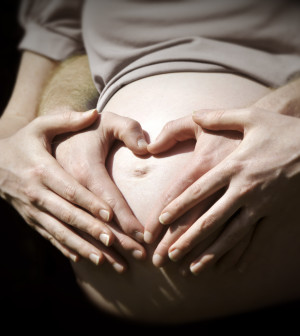- Are You Making This Expensive Thermostat Error This Winter?
- Recognizing the Signs of Hypothyroidism
- 10 Strategies to Overcome Insomnia
- Could Artificial Sweeteners Be Aging the Brain Faster?
- Techniques for Soothing Your Nervous System
- Does the Water in Your House Smell Funny? Here’s Why
- Can a Daily Dose of Apple Cider Vinegar Actually Aid Weight Loss?
- 6 Health Beverages That Can Actually Spike Your Blood Sugar
- Treatment Options for Social Anxiety Disorder
- Understanding the Connection Between Anxiety and Depression
Brain Activity Changes in Pregnant Women, Study Finds


Pregnant women have increased activity in an area of the brain that processes other people’s facial expressions, and this heightened activity may help expectant moms prepare to bond with their newborns, researchers report.
The study included pregnant women and new mothers whose brain activity was monitored as they looked at pictures of adult and baby faces with either positive or negative expressions.
The results showed that the pregnant women used the right side of the brain more than new mothers when viewing the images, according to the study presented Wednesday at the annual meeting of the British Psychological Society, in Birmingham, England.
“Our findings give us a significant insight into the ‘baby brain’ phenomenon that makes a woman more sensitive during the child-bearing process,” Victoria Bourne, from the department of psychology at Royal Holloway, University of London, said in a university news release.
“The results suggest that during pregnancy, there are changes in how the brain processes facial emotions that ensure that mothers are neurologically prepared to bond with their babies at birth,” she explained.
“We know from previous research that pregnant women and new mothers are more sensitive to emotional expressions, particularly when looking at babies’ faces. We also know that new mothers who demonstrate symptoms of post-natal depression sometimes interpret their baby’s emotional expressions as more negative than they really are,” Bourne said.
“Discovering the neuropsychological processes that may underpin these changes is a key step towards understanding how they might influence a mother’s bonding with her baby,” she concluded.
Research presented at medical meetings should be viewed as preliminary until published in a peer-reviewed journal.
More information
The American Academy of Pediatrics has more about bonding with your baby.
Source: HealthDay
Copyright © 2026 HealthDay. All rights reserved.










